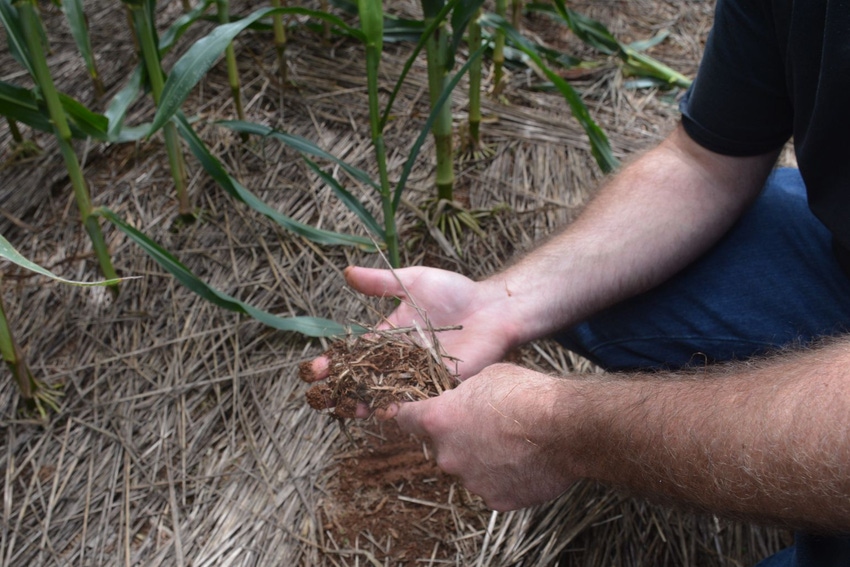
Like clean air and clean water, the need for healthy soils is an idea everyone supports. The challenge is how to improve soils and reward farmers for being soil stewards.
Although they rarely get credit for their work, the vast majority of farmers are responsible soil stewards. They know healthy soil keeps them in business, but more importantly they are committed soil conservationists. They take their land stewardship responsibilities seriously.
Soil health is becoming a bigger topic in the 21st century. To address the issues, the North Carolina Biotechnology Center and the Soil Health Institute convened a summit in February at the University of North Carolina Friday Center in Chapel Hill that brought in some of the leading thinkers on soil health.
Steve Warshawer, owner of Mesa Top Farm and founder of Beneficial Farms in New Mexico, emphasized at the summit that if you’re going to ask farmers to do more to improve soil health, they will have to be paid for their efforts. Incentives are a must to reward farmers for taking steps to improve soil health.
Without a doubt, farmers know their land and soil better than anyone else. “The footprint of the farmer is the best fertilizer,” Warshawer said at the summit. And indeed farmers must be the ultimate decision manager when it comes to soil health management.
Cover crops and no-till have long been seen as keys to soil health. Soil that better holds water and increasing carbon content are vital. Summit speakers emphasized that soil health is the ability of land to produce healthy and nutritious crops year after year, generation after generation.
Bill Buckner, president and CEO of the Noble Research Institute, noted that nothing happens overnight when you are trying to rehabilitate and regenerate soils. He said the Soil Renaissance project was launched in in 2013 when the Noble Foundation joined the Farm Foundation in a $20 million, 10-year commitment to the Soil Health Institute to make sure soil use decisions were the cornerstone of all land use decisions.
Efforts will look at the interrelations between soil, microbes, plants, plant roots, animals and humans. Buckner said it is critical to move the dial on R&D. There is still much to be learned about soil health, and Buckner emphasized that farmers and ranchers need to be incentivized for their soil health efforts.
“Farmers and ranchers, especially the early adopters, have a PhD in observation. They can smell the earth. They know when they are getting good biological activity. They walk the ground,” he said.
Through it all, soil health must be monetized, Buckner said. Farmers must be given incentives for developing a systems approach to improving soil.
About the Author(s)
You May Also Like






